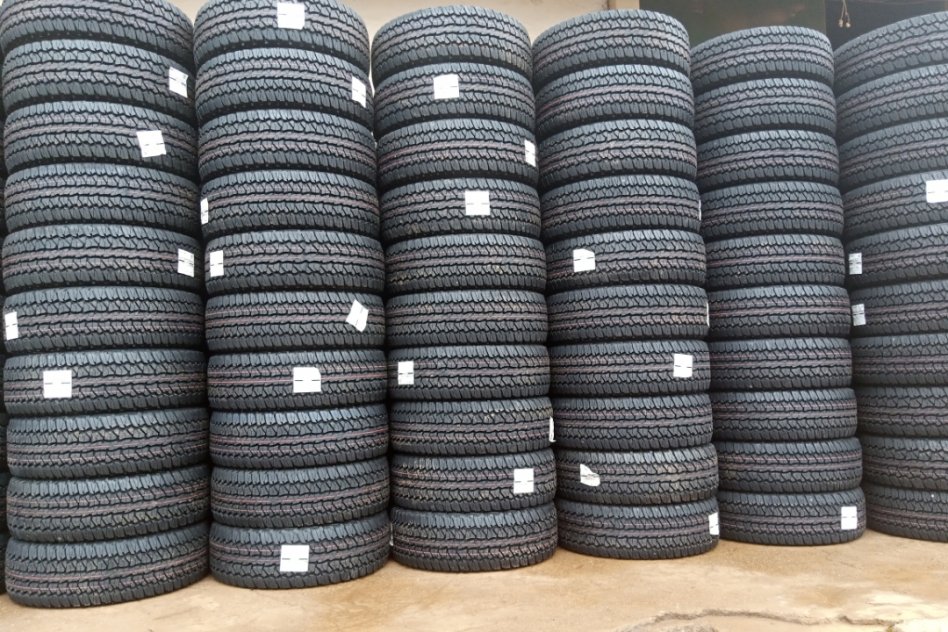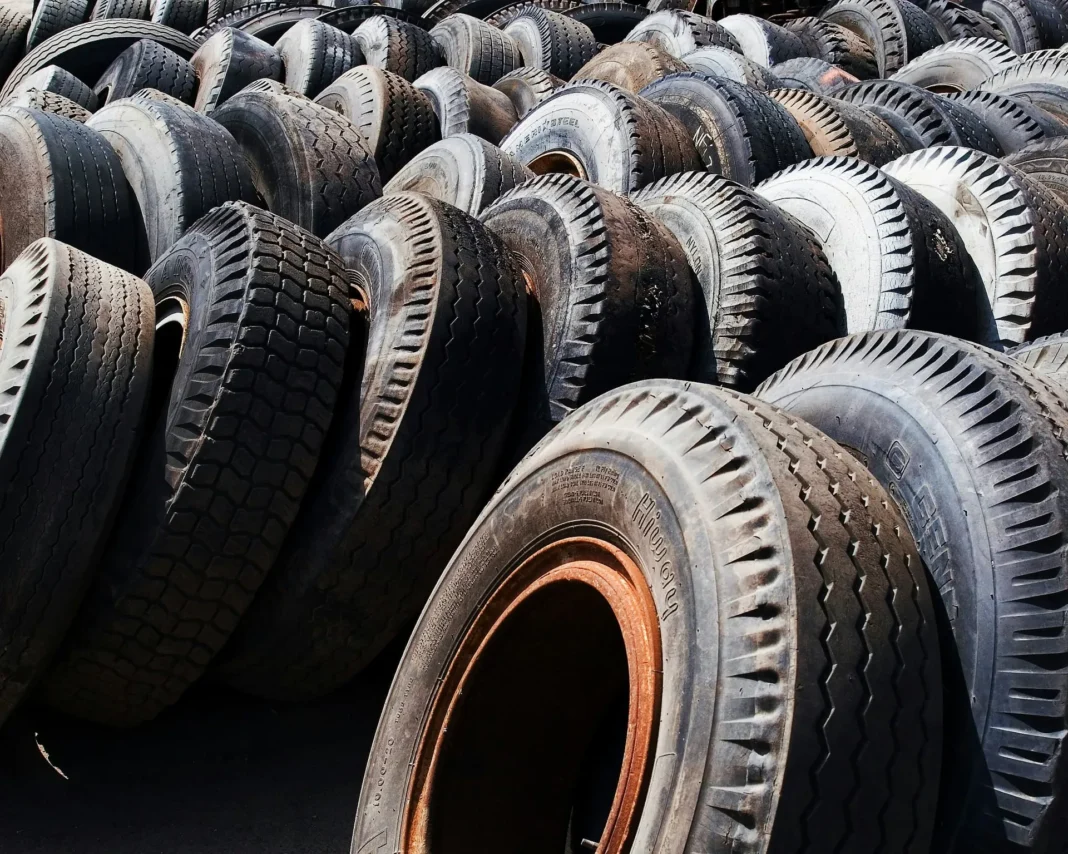Ghana’s automotive landscape has undergone significant transformation over the decades. From the post-independence era to the modern day, vehicles have become increasingly accessible to the middle class, with car ownership steadily rising across urban and semi-urban areas. This growth in vehicle ownership brings challenges, including high maintenance costs. Among the critical components of cars that require regular checks and often prove costly, tyres cannot be overlooked.
This reality has prompted car owners to turn to used tyres as a practical and cost-effective alternative. These tyres, predominantly imported from Europe, Asia, and North America, have flooded local markets, becoming the preferred choice for both commercial and private drivers. Today, the second-hand tyre business continues to thrive despite growing safety and environmental concerns
The Rise of Used Car Tyres in Ghana
New tyres are typically expensive, especially for imported vehicles whose parts aren’t manufactured locally. A brand-new tyre costs between GHS 600 to over GHS 1,200, depending on the brand and size, while a used one could cost between GHS 300 – GHS 150. For many drivers, especially commercial operators, ride-hailing drivers, and transport businesses operating on thin margins, the difference is not just attractive; it’s essential.
There’s also the issue of limited availability of quality new tyres in some regions. In rural communities, second-hand tyres are often the only realistic option as they are sold by local mechanics and roadside traders.

Why Ghanaians Continue to Choose Used Tyres
The preference for used tyres primarily reflects economic hardship, but it is also influenced by accessibility and prevailing perceptions within the community. This sentiment was echoed by Mr. Frank Atanley Kofigah, Executive Secretary of the Vehicle and Assets Dealers Union, who shared with LetsRideNDrive that ‘economic factors greatly determine the sale of cars in Ghana,’ emphasizing that ‘used tyres are 80% cheaper than brand-new ones.’ He explained that the widespread use and patronage of used tyres stem from the substantial number of middle- and lower-class earners.
Public perception aligns with the preference for second-hand tyres, particularly those imported from countries with stringent quality control measures. Many users regard these tyres as being more durable than new ones.
Used tyres are also more readily available. They can be quickly sourced in open markets across cities like Accra, Kumasi, Takoradi, and Tamale, as well as in smaller towns and border communities. Their availability reduces downtime when damaged tyres need to be replaced.
For drivers operating mainly within cities or on shorter routes, used tyres are often considered ‘good enough.’ The assumption is that as long as a tyre isn’t visibly damaged and has adequate tread, it will function without issue. Unfortunately, this perception often overlooks hidden risks that may not be immediately apparent.
As Mr. Frank Atanley Kofigah pointed out, ‘there’s a need for us to change the narrative about used car tyres in Ghana.’ He noted that these tyres are not as safe as widely believed. Many drivers are unaware of the hazards associated with used tyres and even assume they are more durable than new ones, though the opposite is often true. Used tyres pose health risks and are more prone to causing accidents.
He further stressed the importance of implementing better standardization measures in Ghana to ensure the availability of new, durable tyres for vehicles, thereby reducing reliance on second-hand tyres.
The Hidden Challenges of Used Tyres
Despite their widespread use, second-hand tyres come with considerable drawbacks. According to the National Road Safety Commission (NRSC), over 75% of second-hand tyres on Ghana’s roads are sub-standard, significantly increasing the risk of blowouts and accidents. The Commission notes that poor tyre conditions contribute to around 30% of road traffic accidents involving commercial vehicles in the country.
Ghana’s Road Traffic Regulations clearly states that vehicle tyres should not be more than four years old from the date of manufacture. However, enforcement has historically been lax, and many used tyres on the market far exceed this age limit.
In addition to safety concerns, the environmental cost of second-hand tyres is mounting. Disposing of old or worn-out tyres poses a significant challenge. Burning them, which is a common practice in recycling, releases toxic gases that contribute to air pollution and respiratory health risks. Without robust recycling programs or infrastructure, used tyres often end up in landfills or gutters, where they become breeding grounds for mosquitoes and other pests.
Government Response and Regulatory Measures
Recognizing the risks, the Ghanaian government has taken steps to regulate the importation of used tyres. In 2015, the Ministry of Transport announced a ban on second-hand tyre imports, which officially came into effect on September 1 of that year. The policy aimed to curtail the influx of sub-standard tyres, protect road users, and align with international safety standards.
To enforce the ban, the Ghana Standards Authority and Customs introduced scanning systems at the ports to detect worn tyres and prevent their entry. Yet, enforcement remains inconsistent, and second-hand tyres still find their way into the country through informal trade networks or smuggling across borders.
Despite these challenges, the initiative marked a turning point, bringing tyre safety into national discourse and prompting stakeholders to consider long-term solutions.

The Future of Tyre Usage in Ghana
As Ghana seeks to modernize its transport infrastructure and reduce road accidents, the future of tyre usage will depend on a combination of regulation, education, and innovation. Promoting the use of new tyres, especially those manufactured to international safety standards will require financial incentives, such as subsidies or reduced import duties, to make them more accessible to everyday drivers.
Public education is also vital. Many vehicle owners are unaware of how to check tyre age, wear, or structural integrity. Campaigns that inform consumers about the dangers of worn or expired tyres can help shift preferences over time. Driver unions, transport associations, and civil society groups all have a role to play in raising awareness and advocating for change.
Another promising avenue is tyre recycling. Startups and green businesses like Dignified Wear in Kumasi are beginning to explore sustainable uses for End-of-Life Tyres (ELTs), turning waste tyres into eco-friendly sandals and flooring materials. Supporting such initiatives could help reduce the environmental impact of discarded tyres and create jobs in the circular economy.
Ghana’s continued reliance on used car tyres is mainly rooted in economic realities and deeply ingrained habits. While they offer short-term affordability and accessibility, the long-term costs in lives, health, and environmental degradation cannot be ignored. With the right mix of policy, enforcement, public education, and innovation, Ghana can transition toward safer, more sustainable tyre practices that protect both people and the planet.




